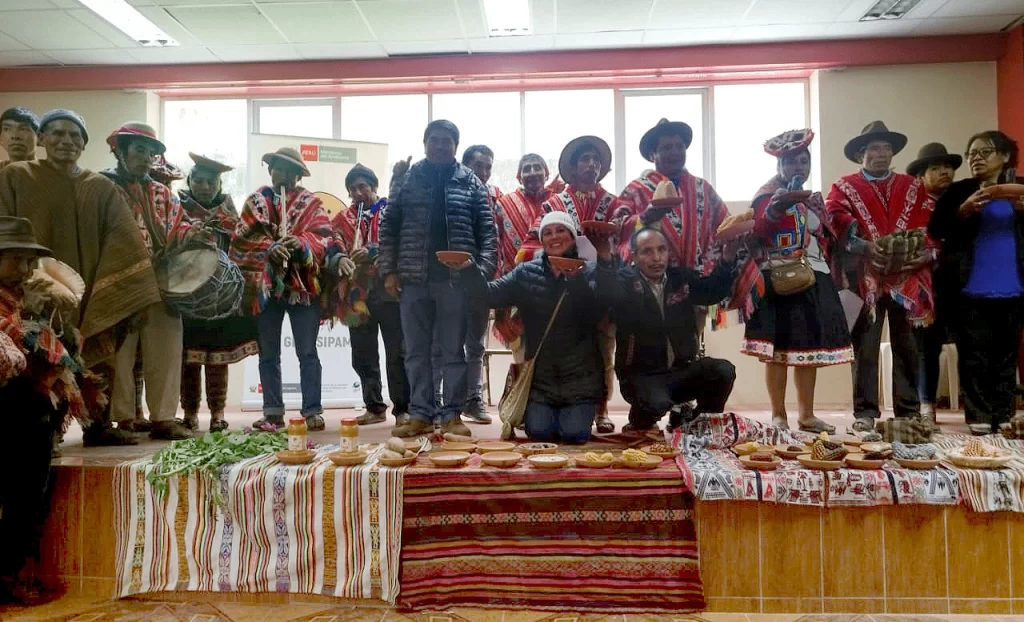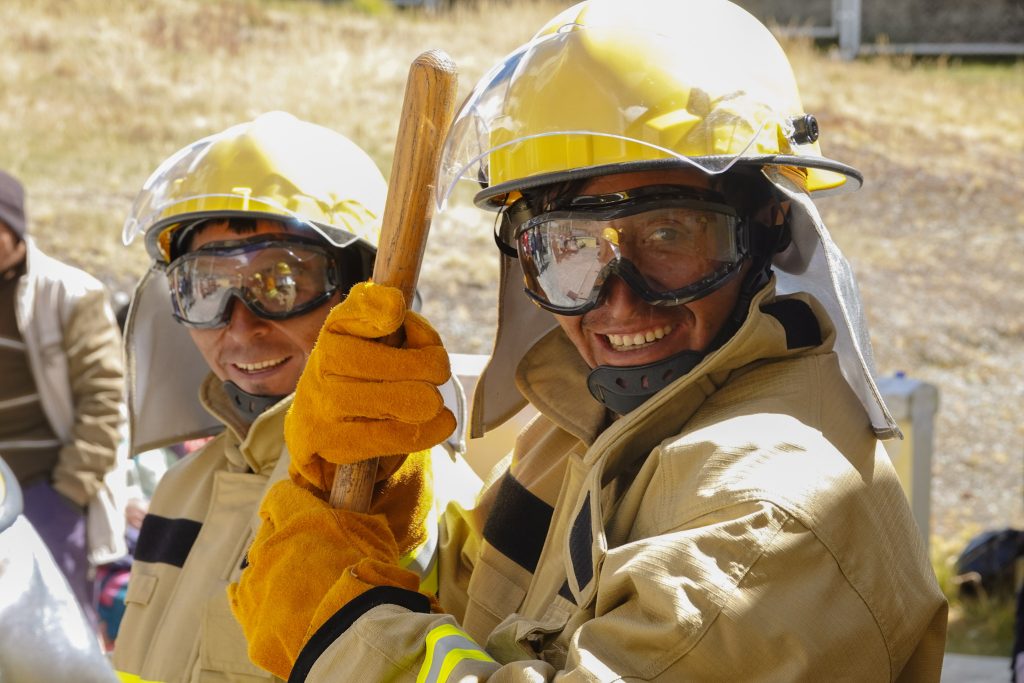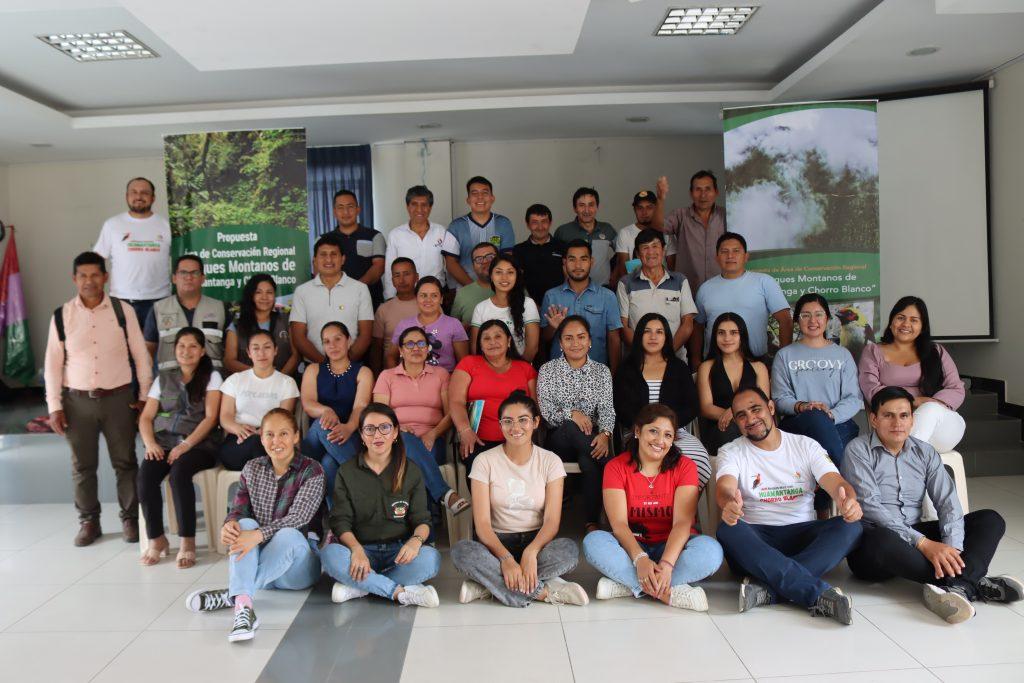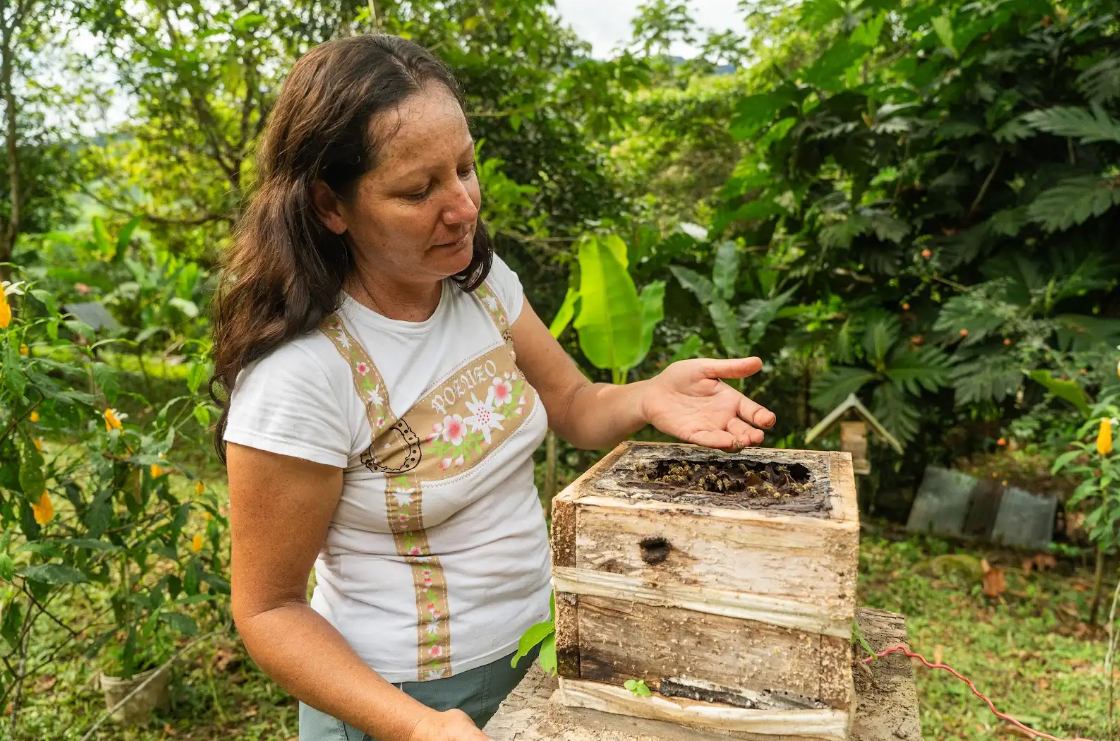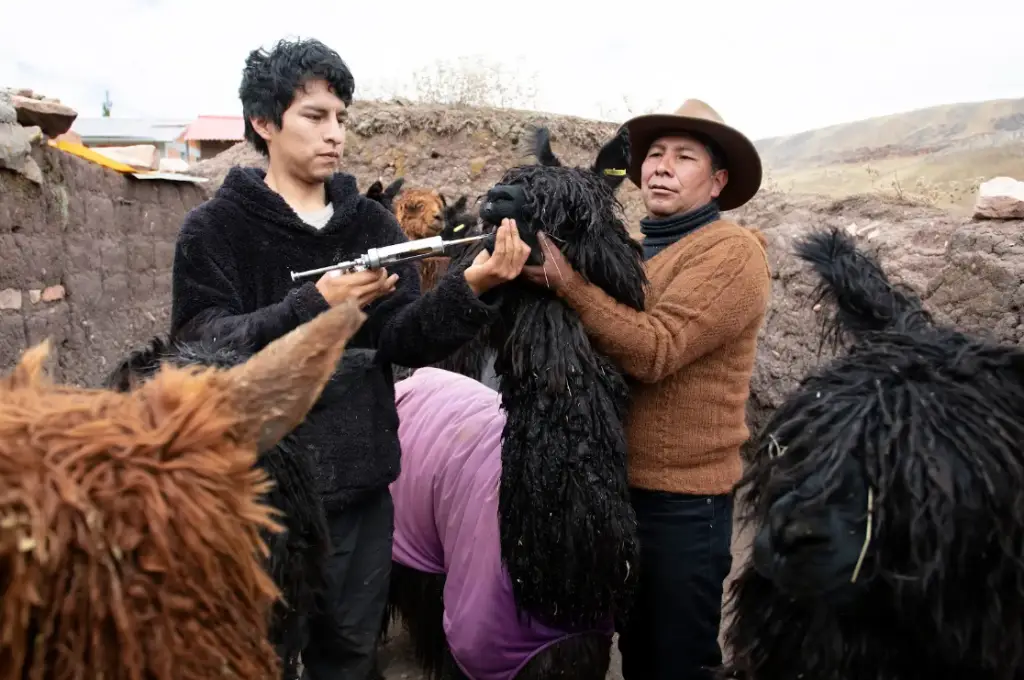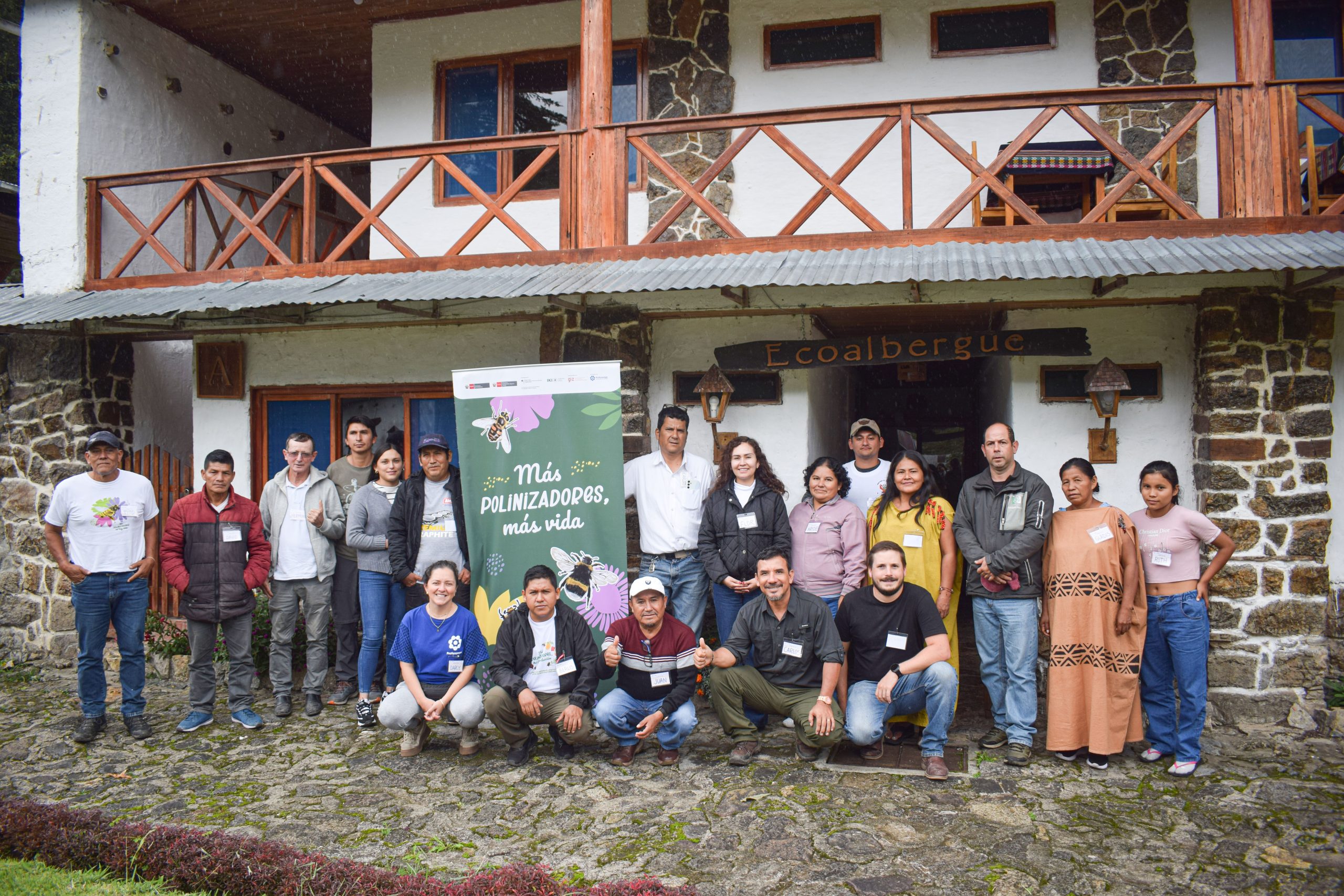In a ceremony attended by district and community authorities from the district of Lares in Cusco, the GEF Agrobiodiversity GIAHS project presented the Action Plan for Dynamic Conservation in the Direct Intervention Zone of the GIAHS Puno-Cusco Corridor, a strategy that seeks to raise international awareness of the district’s agricultural importance.
The plan involves the active participation of the different actors in the territory, such as farmers and local authorities, to enhance the recognition of this locality. Lares has been declared a GIAHS territory, a recognition granted by the Food and Agriculture Organization of the United Nations (FAO) due to its high value as a landscape, as well as its agricultural biodiversity, its value as a cultural heritage and for being a resilient ecosystem.
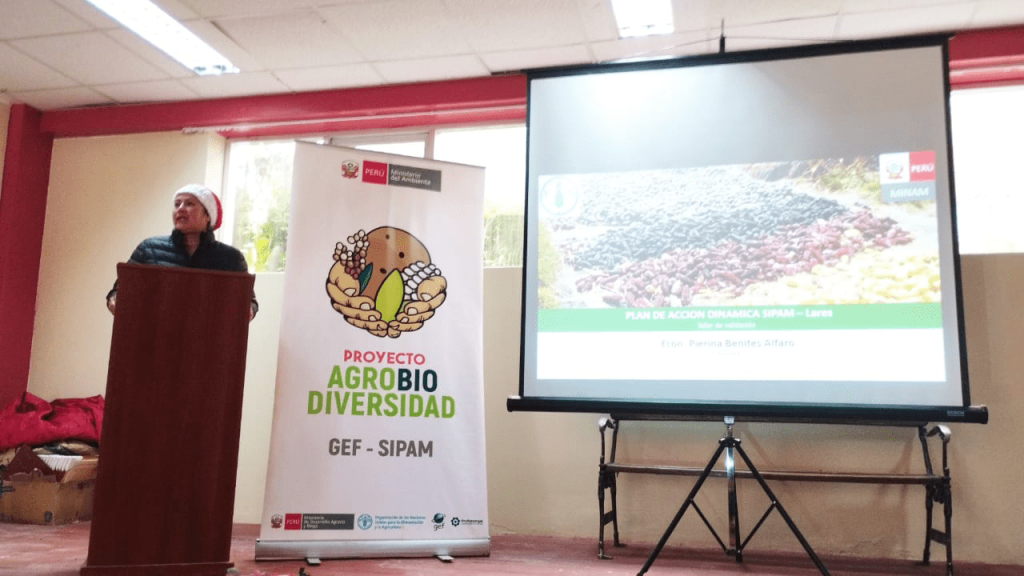
The Action Plan aims to strengthen GIAHS recognition through the promotion of sustainable livelihoods for local food security, the conservation of agrobiodiversity and vulnerable ecosystems, and the strengthening of community governance and cultural manifestations. To achieve these objectives, it is necessary to raise awareness among the community, who are already working hand in hand with the project for the recovery and conservation of agrobiodiversity foods.
This plan will also help to finance actions that will allow for its preservation, as well as support new public and international cooperation funding.
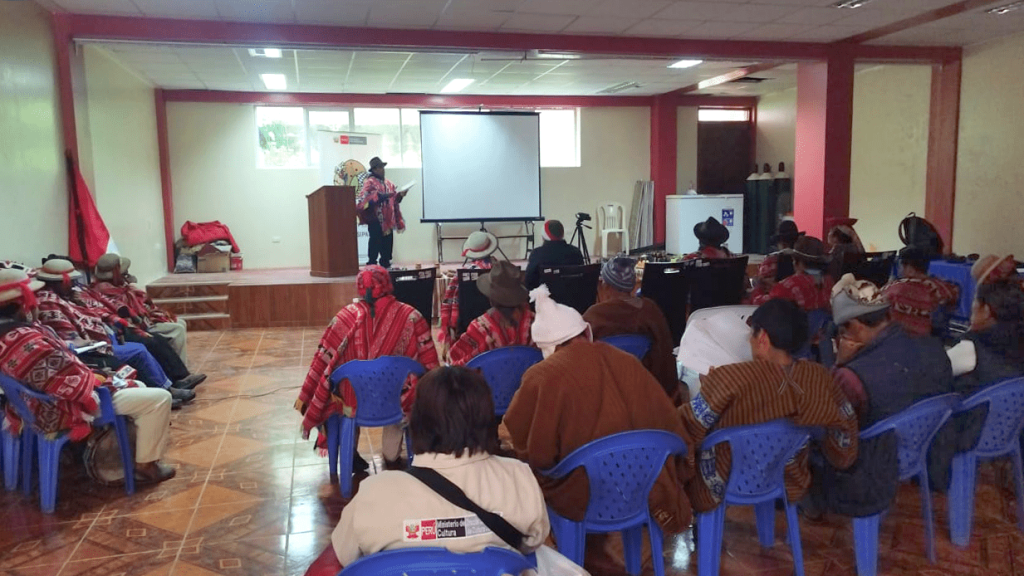
The fact
The district of Lares is immersed in the Puno-Cusco corridor, the only Peruvian area declared a GIAHS site in 2011, in the rural communities of Lares Ayllu Talana, Choquecancha and Ccachin.
It is located in the central Andes, one of the eight world centers of plant domestication and the most important mountain system in South America.
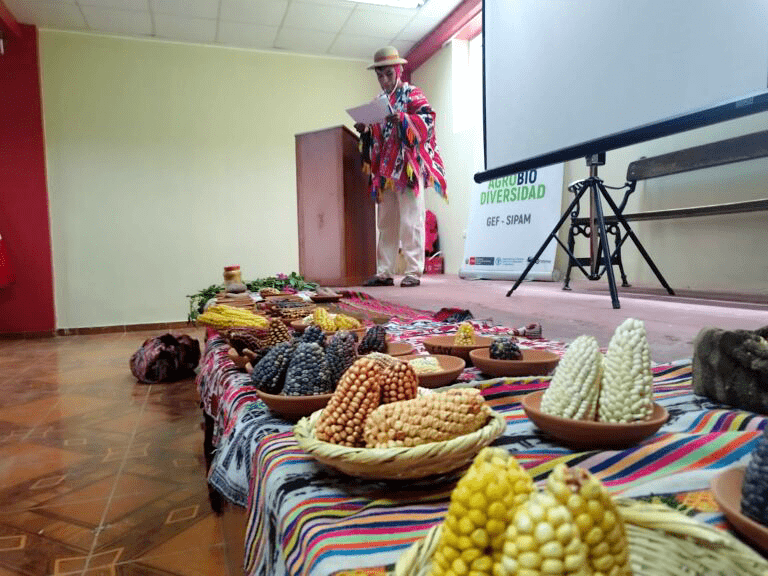
About the GEF Agrobiodiversity GIAHS Project
The GEF Agrobiodiversity GIAHS project seeks to conserve agrobiodiversity in the localities of Acora (Puno), Huayana (Apurimac), Lares (Cusco), Laria (Huancavelica) and Atiquipa (Arequipa), through traditional agricultural systems, integrated management of forests, water and land resources, and the maintenance of ecosystem services.
This initiative is financed by the Global Environmental Facility (GEF), executed by the Ministry of the Environment and the Ministry of Agrarian Development and Irrigation, with the implementation of the Food and Agriculture Organization of the United Nations (FAO) and the administration of Profonanpe.


